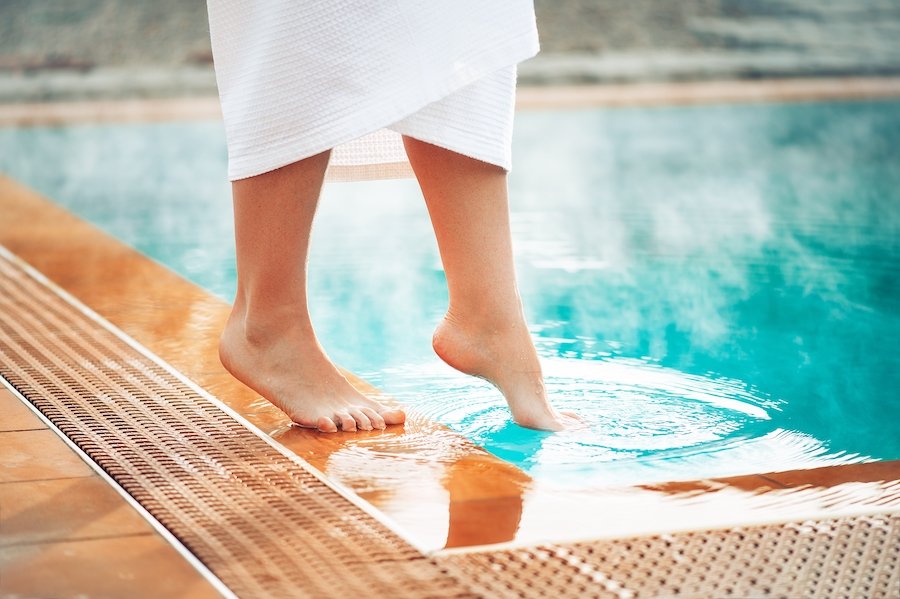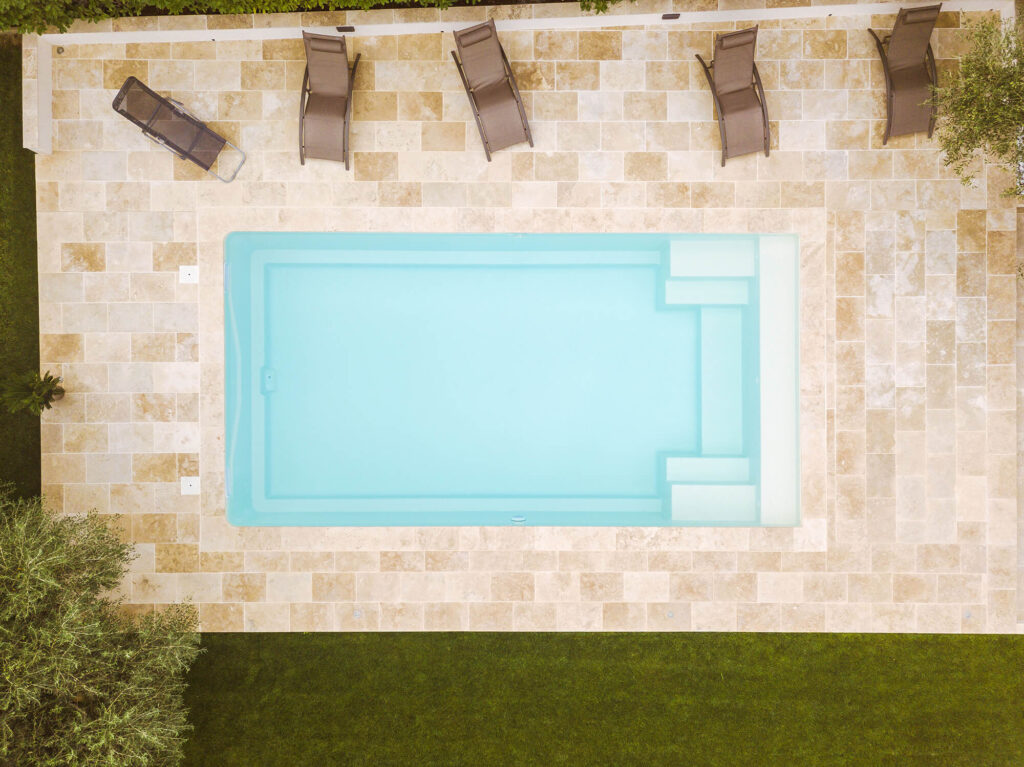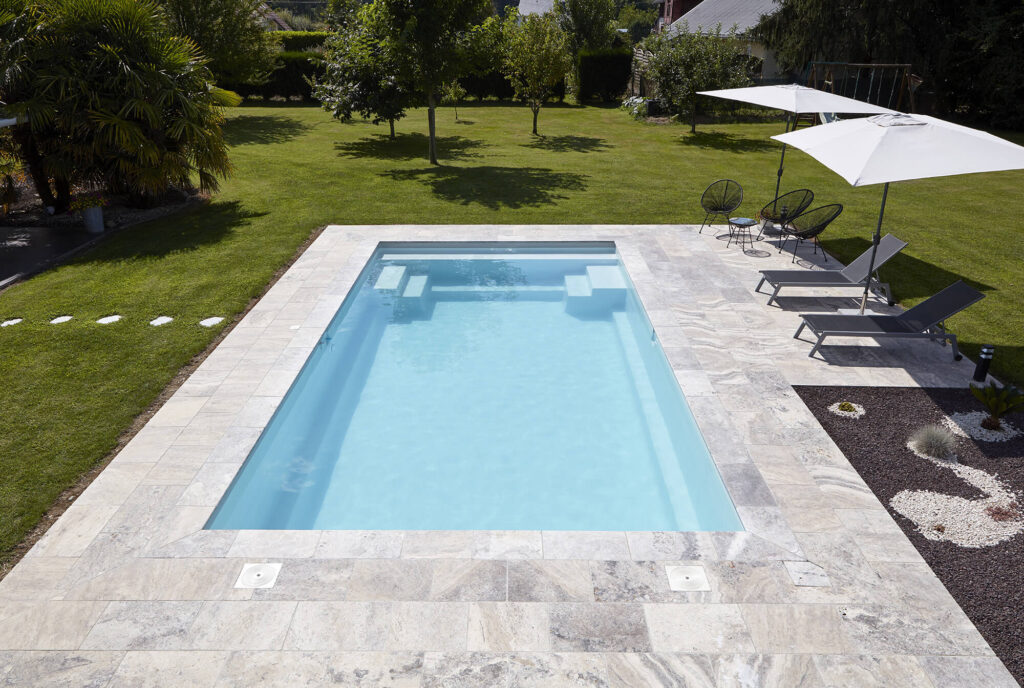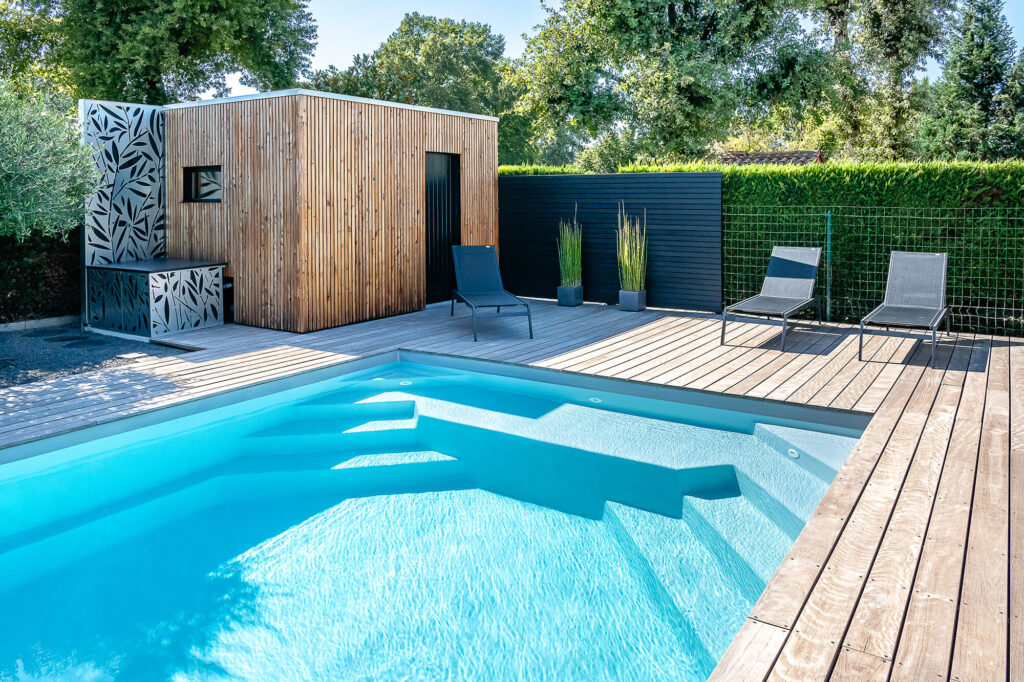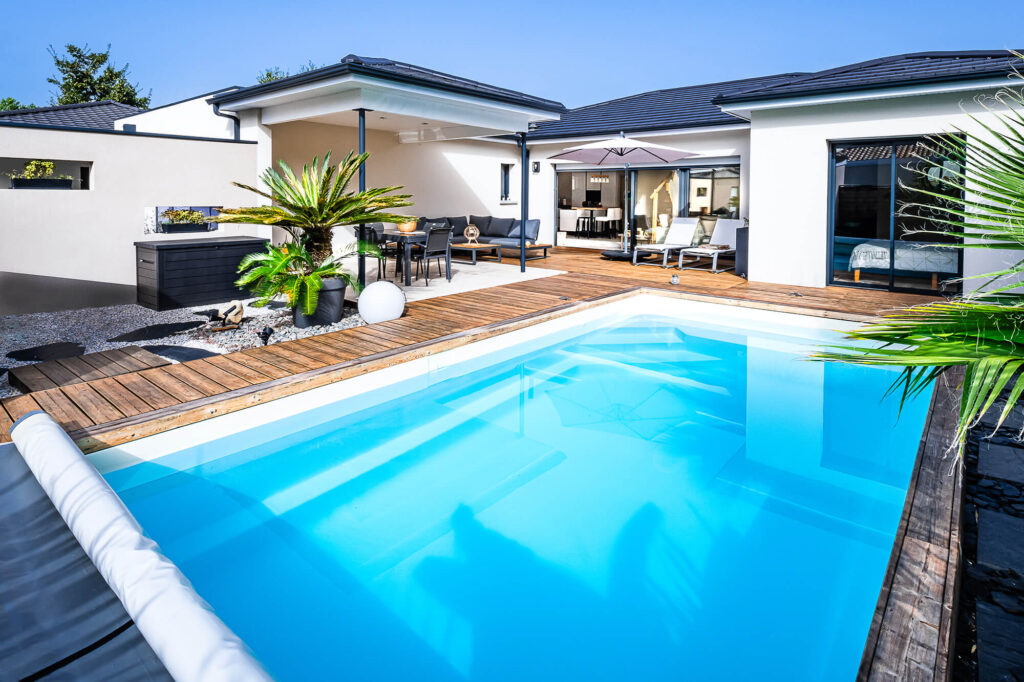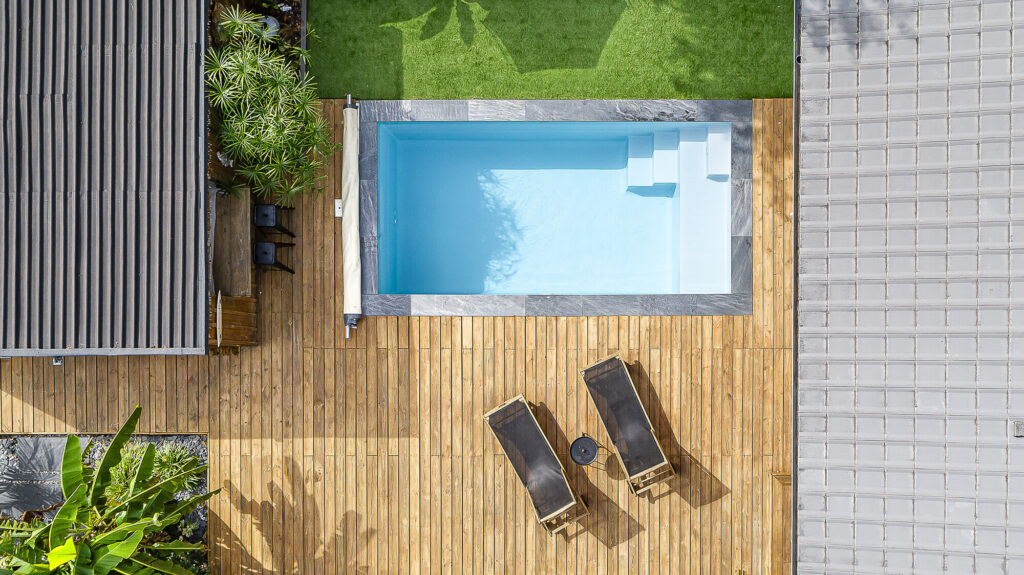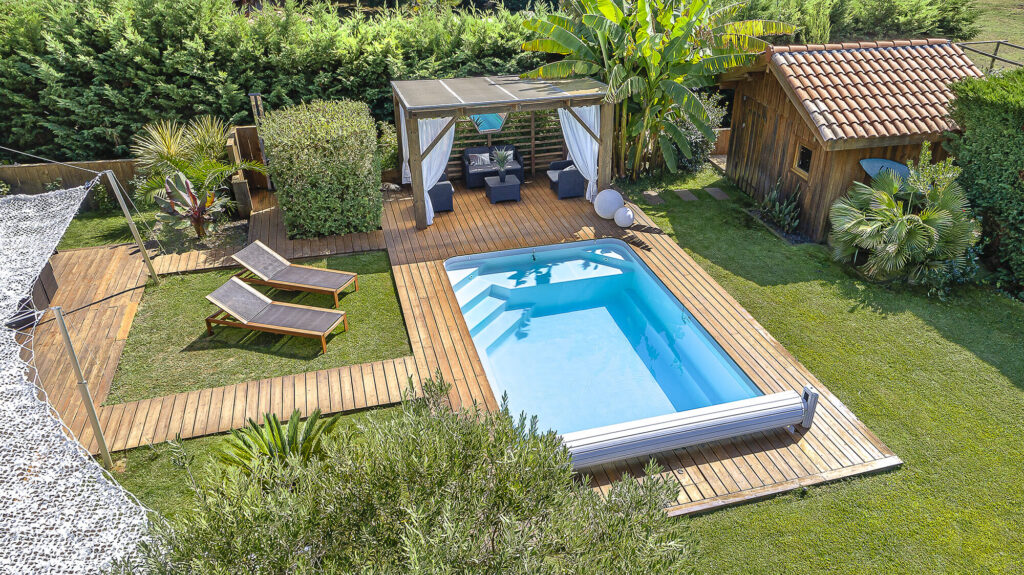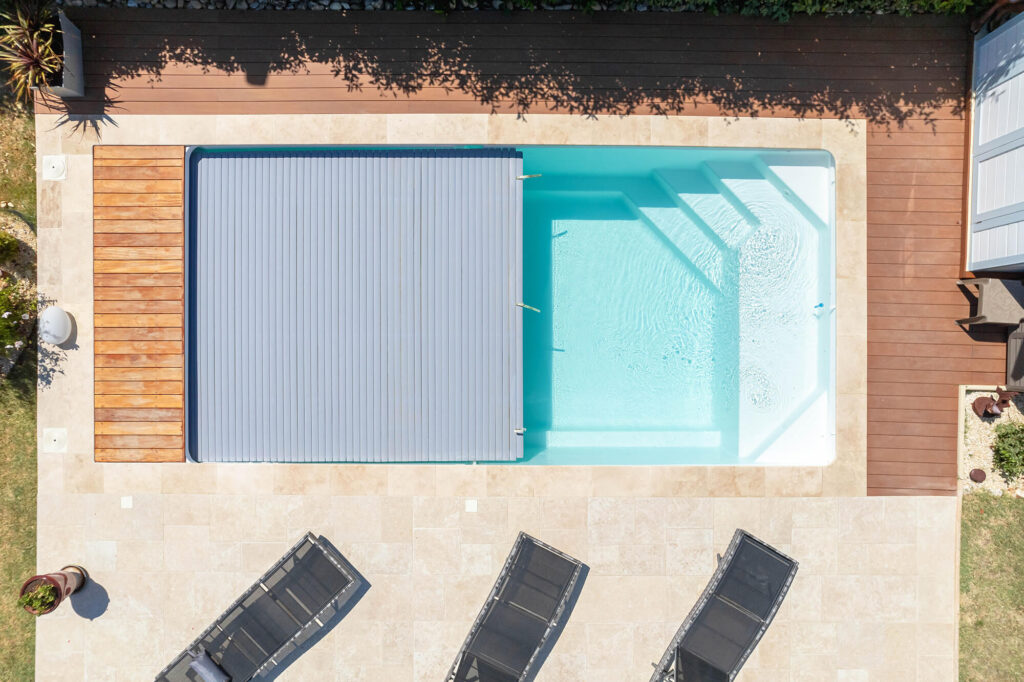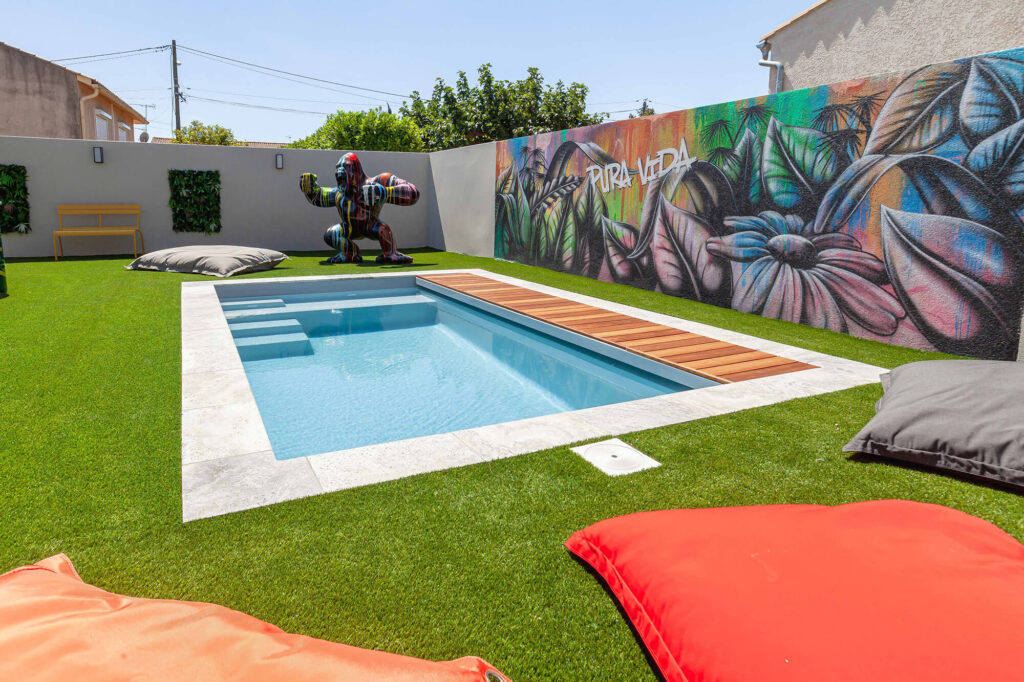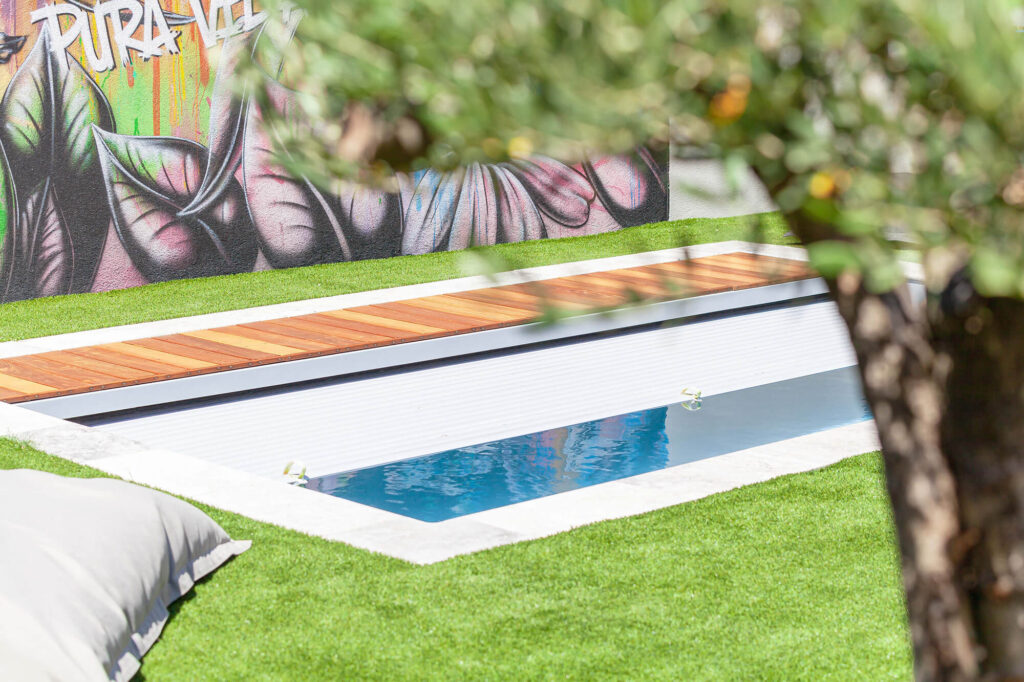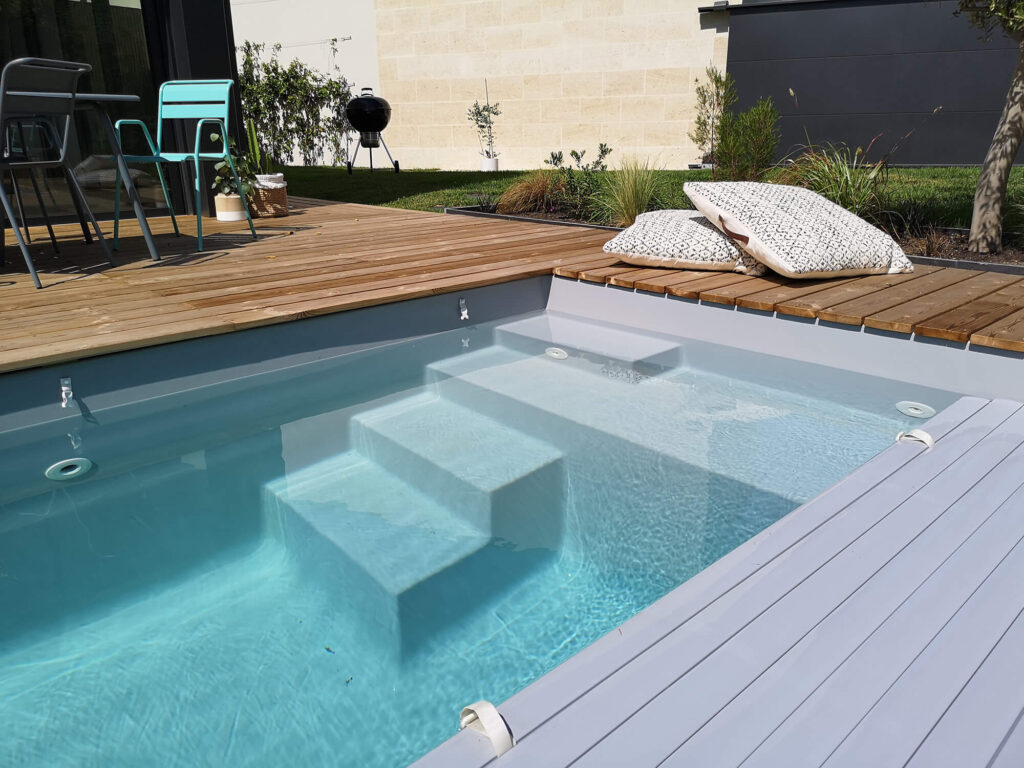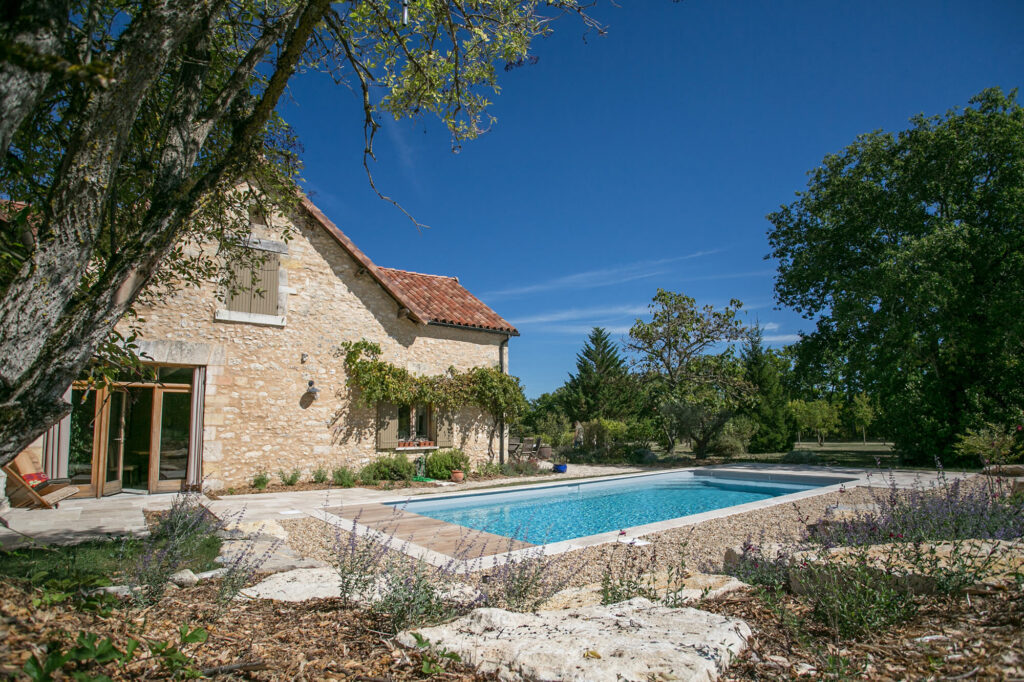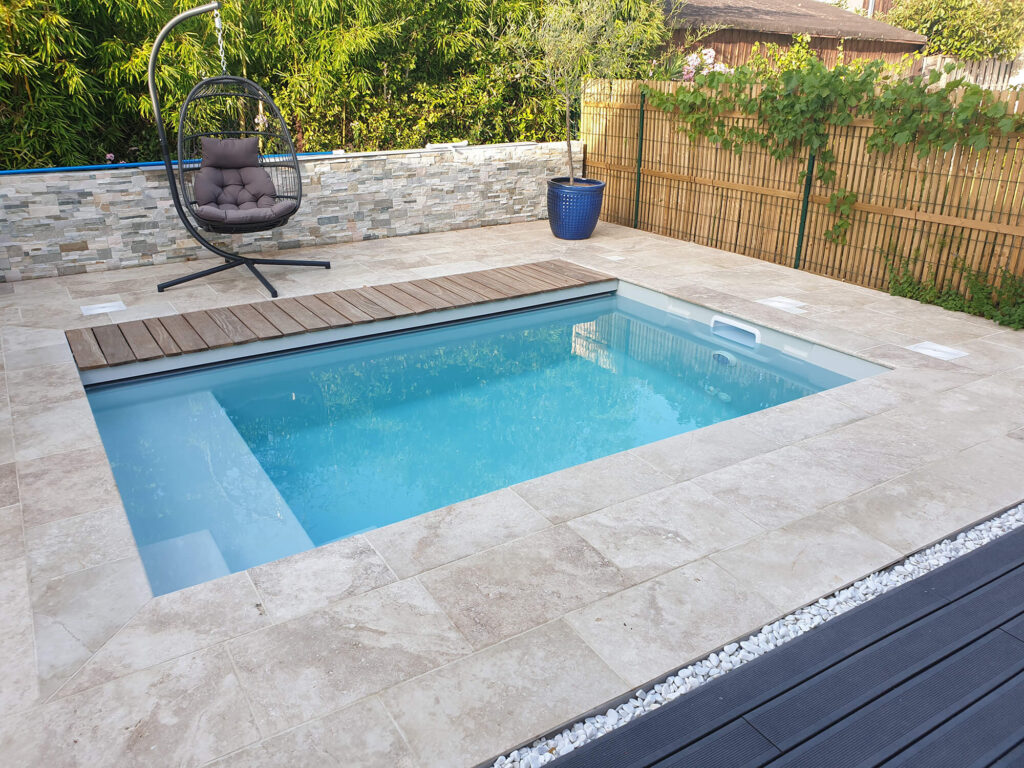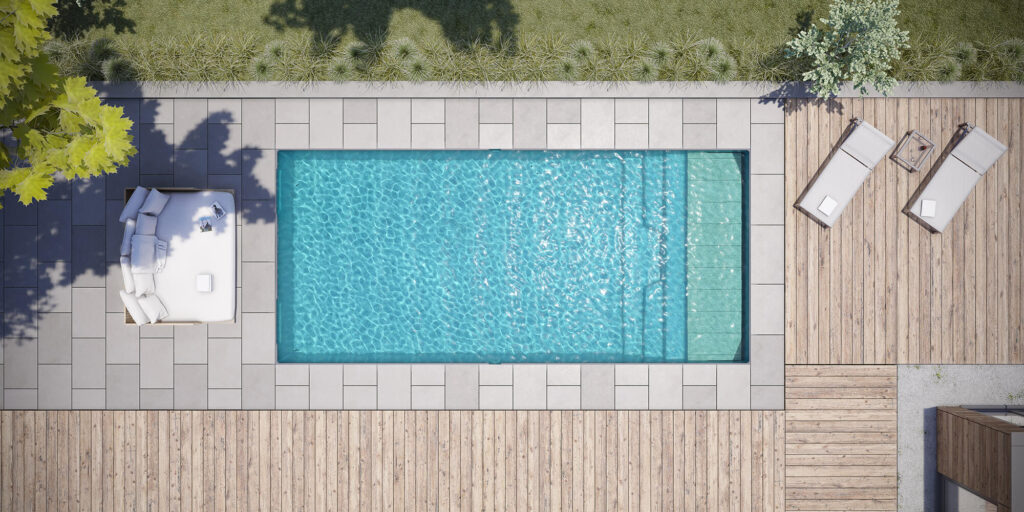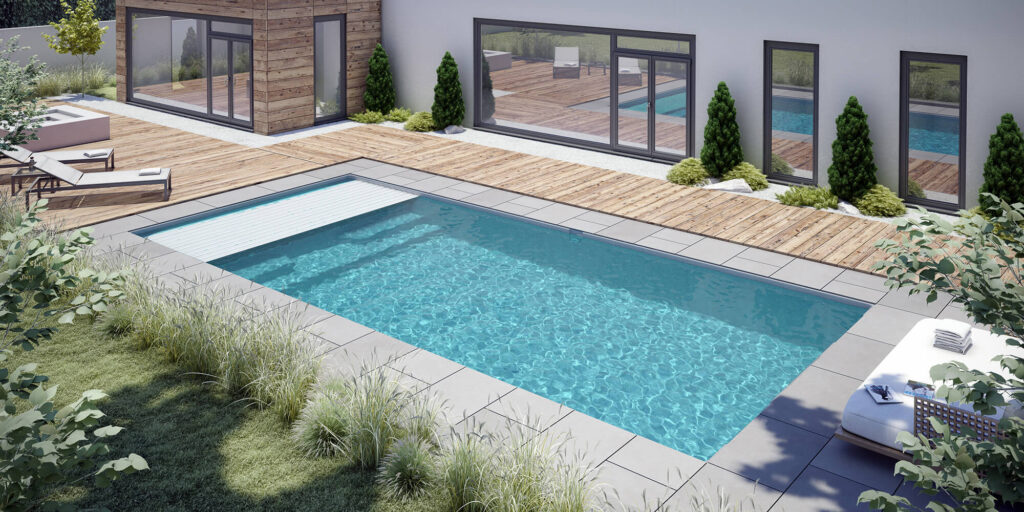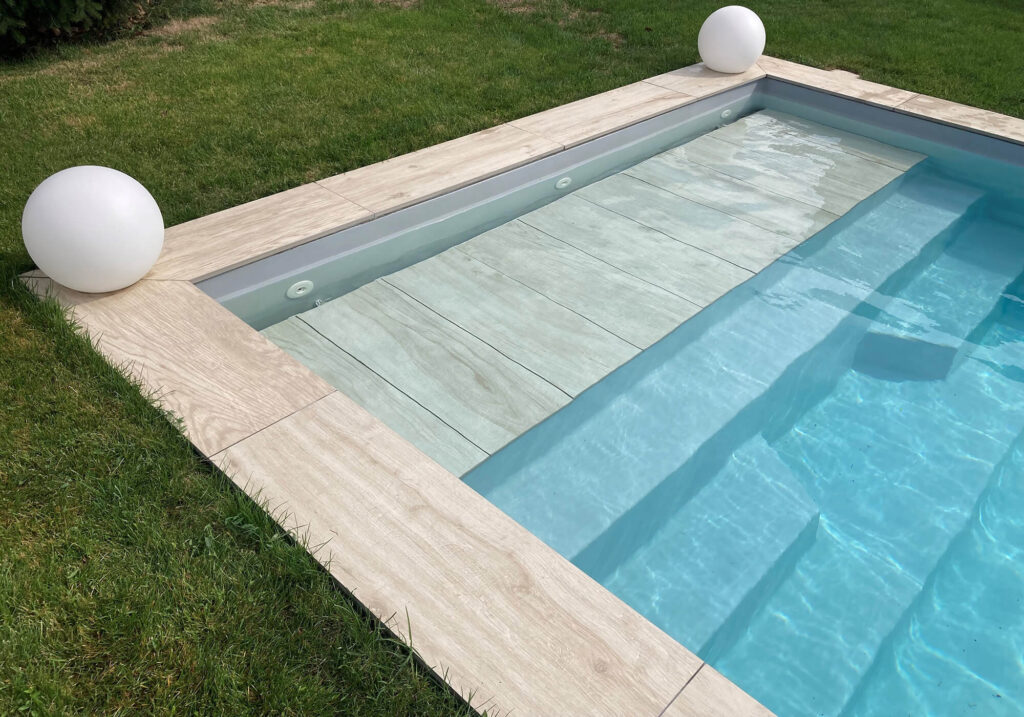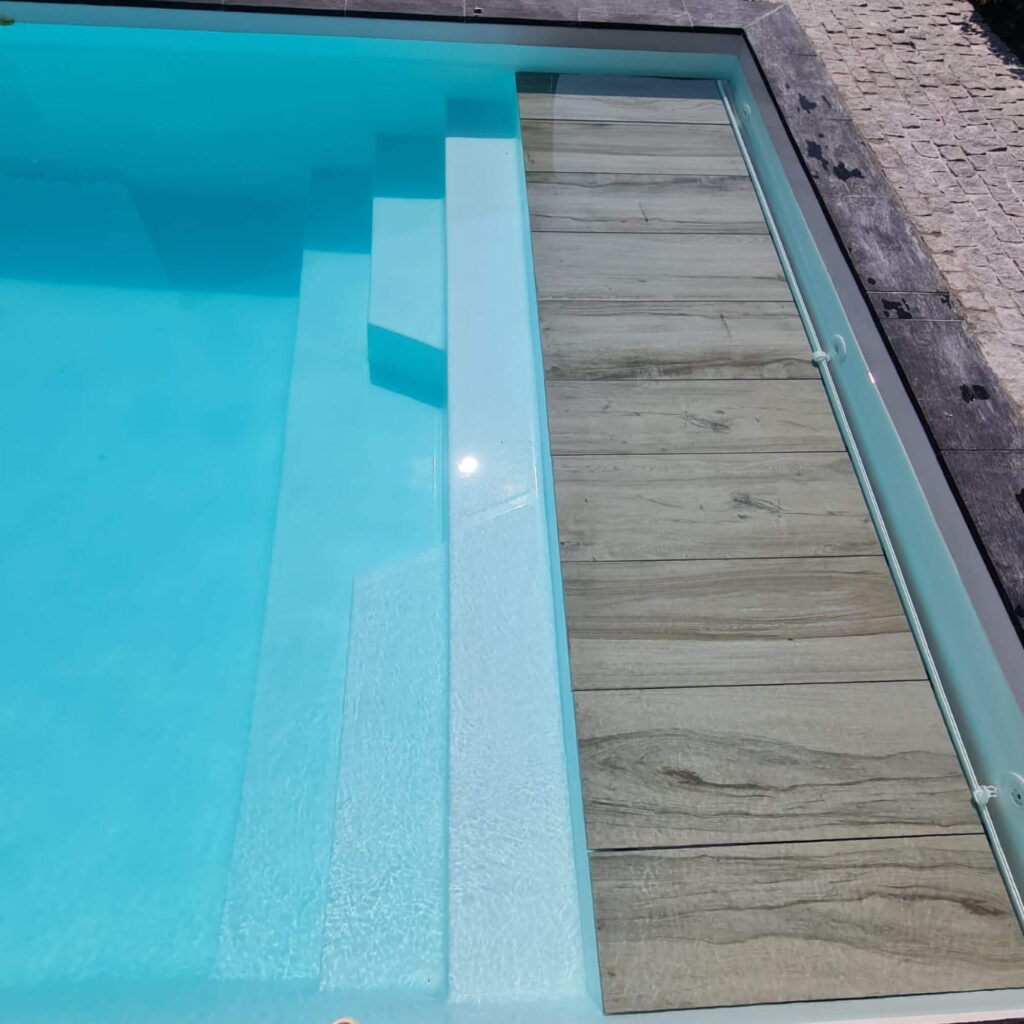The water temperature is one of the criteria that can have a significant impact on bathing quality.
Fortunately, there are solutions for heating above-ground or in-ground pools. While some are more expensive to install than others, all allow you to enjoy your pool before summer sets in.
But before you do, don’t forget to determine the heating requirements of your polyester shell pool of your home!
How do I determine my pool’s heating requirements?
Before answering the question how to heat your poolyour pool’s heating requirements depend on a number of criteria:
- Air temperature ;
- Sunshine ;
- Location;
- Dimensions.
So, within the same region, the solutions for increasing the temperature of your pool will not be identical to those of your neighbor. So keep these factors in mind when choosing one of our heating solutions for your pool.
But also upstream during the construction of your pool! To do this, call on a Aboral professional who will be able to guide you and suggest the right solutions.
How to heat your pool?
On the market, there are numerous solutions for heating the water in your shell pool. These can help you gain a few degrees without increasing your electricity consumption.
Heat pump or solar heating: which solution is better for your pool water?
Heat pumps, the most efficient solution
The pool heat pump – also known as a boiler – is recognized as the heating system the most efficient and environmentally-friendly electric-powered machine. The reason? Directly positioned in the filtration circuit, the :
- Captures heat from ambient air;
- The compressor amplifies it;
- Returns it to your pool water.
Although this heat pump has a certain investment cost, you’ll save on electricity costs in the long term.
The Full Inverter technology is ideal for this. This allows precise adjustment of operating intensity, taking into account climatic constraints and the basin’s energy requirements. The result? Only the necessary power is delivered by the components to heat the water. As a result, the Inverter heat pump heat pumps consume less electricity.
If you opt to install a heat pump, Aboral recommends that you shelter it. So you can :
- Protect it: It is preferable to protect your electric heating system from rain, wind, snow and UV rays;
- Avoid shocks: covered, it cannot be damaged by falling branches, tiles, etc;
- Reduce noise pollution: heat pumps emit a background noise that may need to be insulated to ensure your peace of mind and that of your neighbors;
- Keeping an attractive outdoor space: a heat pump is more difficult to place in a garden setting.
Solar heating, the ecological solution
Another way to heat your pool water: solar heating. solar heating !
Although it’s a major investment, solar heating is as efficient as it is environmentally friendly. It is capable of heating your pond water up to 5 to 10°C, provided it faces due south. What’s more, this heating system will cost you less later on, since it uses solar energy !
When installing your solar panels, you have two options:
- On the roof of your home A strategic location to benefit from the sun’s rays all day long;
- On the ground near the pool Ground-mounted: more economical than the previous solution, the panels can be oriented as you wish, but run the risk of not benefiting from sunlight all day long.
It’s up to you to choose the most strategic locations that benefit from long exposure to the sun.
Economical heating solutions
If you live in a cold region, the heat pump’s energy consumption is likely to be high, and the solar panels won’t get enough sunlight to heat your pond water.
Black pipe method, bubble wrap… Visit economical systems exist for heating your pool water while saving energy.
The black pipe method for free pool heating
Using heat-conducting pipes, you can easily – and above all economically – heat your pool water.
To do this:
- Get heat-conducting pipes;
- Connect them to your pool pump to create a closed circuit;
- Place them in full sun.
Your pipes will gradually heat the water flowing through them, and you’ll gain a few degrees while enjoying your pool.
Bubble wrap to limit heat loss
Another heating system we don’t necessarily think about: the bubble cover ! This cover is a real asset in preventing heat loss from your pool.
When night falls, your heated pool is often subject to heat loss, which can considerably reduce its temperature. temperature of your pool. This phenomenon, linked to water evaporation, is not only detrimental to your swimming enjoyment, but also to your energy consumption!
To counteract evaporation and heat loss, opt for one of our solar blankets (also known as solar tarpaulins or solar mats) available on the market. Install this cover on your in-ground pool for night or day, and keep the water at the right temperature all summer long.
Want to enjoy the benefits of using of a heating system for your pool? Contact our AboralThey’ll be happy to help you choose and install your electric or solar heating system!
Configure your pool online Back to news